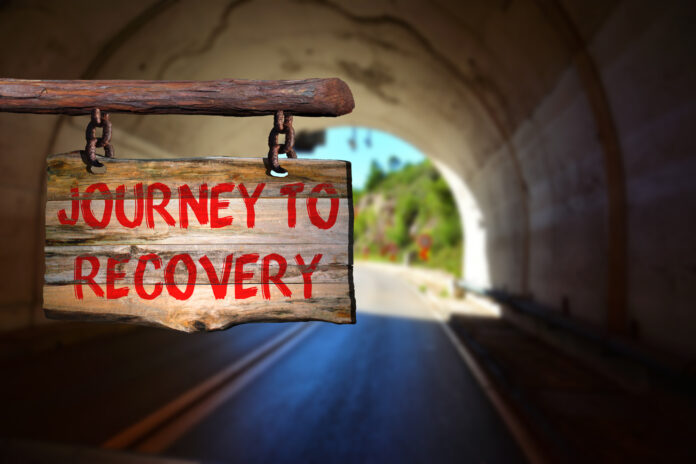Addiction is a debilitating condition that impacts the struggling individual, their loved ones, and the entire community. It is a global issue that affects millions of people worldwide.
In the U.S., the National Center for Drug Abuse Statistics reported a staggering number of drug overdose deaths nearing a million from 2000 to the present. This alarming data highlights the pressing need for increased awareness, understanding, and effective treatment options for addiction.
This comprehensive guide delves deep into the different types of addiction, the causes and effects, and the various evidence-based treatment options available for those in need of help. Whether you or a loved one is struggling with addiction, this guide provides the information and resources required to take the first step towards a healthier, happier life in recovery.
Addiction: What Is It?
Addiction is a complex disease affecting an individual’s brain and behavior. It’s characterized by the inability to stop engaging in a behavior or using a substance despite the negative consequences it causes in their life. American Society of Addiction Medicine (ASAM) and Substance Abuse and Mental Health Services Administration (SAMHSA) define it as a chronic disease of the brain that affects human reward, memory, motivation, and other related circuitries.
Treatment centers such as https://jacksonhousecares.com/about-us/locations/temecula/ play a crucial role in addressing addiction and helping individuals recover. They provide a safe and structured environment where individuals can receive treatment, support, and tools to help overcome addiction and improve their overall well-being.
Types of Addiction
Addiction can manifest in different ways and can include:
* Substance Use Disorders
These disorders are characterized by repeated substance uses, despite the negative consequences it causes in the individual’s life. It can include physical, psychological, and social problems.
* Behavioral Addictions
These refer to repeated engagement in a behavior despite the negative consequences it causes in the individual’s life. It can include problems with relationships, work, and financial stability.
Note that addiction is not limited to just drugs and alcohol. It can also be related to behavior, such as compulsive gambling, internet use, shopping, and even eating.
Causes And Effects Of Addiction
A combination of different factors influences addiction, and understanding the causes of addiction can help individuals and their loved ones better understand the disease and develop effective treatment plans.
The causes of addiction may include any or all of the following:
* Genetics: Studies have shown that certain genetic factors can increase an individual’s addiction risk.
* Environmental Factors: Exposure to trauma, stress, or adverse childhood experiences can increase an individual’s risk of developing an addiction.
* Personal Factors: Mental health conditions, such as depression and anxiety, can also increase an individual’s risk of developing an addiction.
The effects of addiction can be severe and can impact an individual’s physical, psychological, and social well-being. Some of the effects of addiction include:
* Physical effects (e.g., liver damage, heart disease, and lung disease)
* Psychological impact (e.g., depression, anxiety, and psychosis)
* Social effects (e.g., problems with relationships, work, and financial stability)
Addiction is a disease, and recovery can be lifelong. But remember that individuals can overcome addiction and improve their well-being with proper treatment, support, and commitment.
Evidence-Based Treatment Options For Addiction
Many evidence-based treatment options are available to help individuals overcome addiction and improve their overall well-being. They include:
1. Medication-Assisted Treatment (MAT)
Medication-Assisted Treatment (MAT) combines medication, behavioral therapies, and counseling to help individuals struggling with addiction to opioids, such as heroin or prescription painkillers.
MAT works on helping alleviate withdrawal symptoms and curb cravings by utilizing medications like:
* Methadone
* Buprenorphine
* Naltrexone
These medications have been specifically designed to target the brain’s reward system and reduce the intensity of withdrawal symptoms, making it easier for individuals to focus on therapy and recovery.
MAT is best for individuals unable to recover through traditional therapies alone. The combination of medication and therapy allows individuals to address both the physical and psychological aspects of addiction, making it a more holistic approach to recovery.
2. Cognitive Behavioral Therapy (CBT)
Cognitive Behavioral Therapy (CBT) is a widely recognized and evidence-based approach to addiction recovery. This talk therapy helps individuals identify and modify negative thoughts, behaviors, and emotions that contribute to their addiction.
CBT’s principle is that thoughts, emotions, and behaviors are interconnected. It’s particularly effective for individuals with addiction as it can provide them with the necessary skills and tools to manage triggers and stressors.
Sessions typically involve the therapist and the individual working together to identify negative thoughts, beliefs, and behaviors related to the addiction. The therapist will then guide the individual in developing new, healthier ways of thinking and behaving to replace the old negative patterns.
This therapy can also be applied to specific subpopulations such as:
* Individuals with co-occurring disorders (e.g., depression and anxiety)
* Particular types of addiction (e.g., gambling and internet addiction)
Overall, CBT can be tailored to the individual’s specific needs and can be used in conjunction with other forms of therapy to help individuals build resilience and lasting recovery.
3. Motivational Interviewing (MI)
Motivational Interviewing (MI) is a client-centered, evidence-based approach to therapy that is particularly effective for addressing ambivalence and resistance among individuals struggling with addiction. The goal of MI is to assist individuals in identifying and overcoming the barriers that may prevent them from seeking treatment and making positive changes.
MI practitioners believe that the therapist and the individual work together collaboratively to explore their thoughts, feelings, and beliefs about their addiction. Through this process, the therapist can help the individual identify why they may be ambivalent about change and then work with them to overcome these barriers and find their motivation for recovery.
MI is a non-confrontational and non-judgmental approach to therapy. The therapist will not try to convince the individual to change. Instead, they help them explore their thoughts, feelings, and beliefs about their addiction and provide them with the necessary tools and support to make positive changes.
4. Contingency Management (CM)
Contingency Management (CM) utilizes positive reinforcement to encourage desired behavior. This therapy is particularly effective for individuals with addiction, as it helps them stay engaged in treatment and achieve their goals by providing tangible incentives for positive behavior.
CM focuses on the immediate consequences of behavior. By providing incentives for positive behavior, individuals are more likely to repeat that behavior, which can help them achieve their recovery goals. CM can include rewards such as vouchers, cash, or prizes for positive behavior, such as:
* Negative drug tests
* Completing therapy sessions
* Staying sober for a certain period
This approach helps individuals stay engaged in treatment, achieve their goals, and build lasting recovery.
5. Community Reinforcement And Family Training (CRAFT)
Community Reinforcement and Family Training (CRAFT) involves the participation of family members in the treatment process to help individuals achieve lasting recovery. They do this by building a supportive network of loved ones who can encourage and assist in recovery.
During CRAFT therapy sessions, family members learn how to identify and respond to addiction-related behaviors and communicate effectively with their loved ones. They also learn how to provide positive reinforcement for healthy behaviors and how to set boundaries and consequences for negative behaviors.
6. The 12-Step Program
The 12-Step Program is based on the Alcoholics Anonymous (AA) model. This approach helps individuals build support and create a community as they work towards achieving lasting recovery. The 12-Step Program is effective for various addictions, including alcohol, drugs, and behavioral addictions.
The 12-Step Program follows a specific set of principles, which include:
* Admitting powerlessness over the addiction
* Recognizing a higher power that can provide strength in recovery
* Evaluating past mistakes and making amends
* Learning to live a renewed and substance-free life
* Helping others who are struggling with addiction
This program provides individuals with a structured environment and a sense of accountability. Members are encouraged to attend regular meetings to share their experiences, strengths, and hopes with others. It also creates a sense of community, as members support and encourage one another in their recovery journey.
7. Holistic Therapies
Holistic therapies are a treatment that focuses on addressing the physical, mental, and spiritual well-being of individuals struggling with addiction. These therapies aim to provide a comprehensive and holistic approach to recovery, addressing addiction and its underlying causes and triggers.
Some examples of holistic therapies include the following:
* Yoga
* Meditation
* Acupuncture
* Massage
These therapies can be used individually or in combination to provide a holistic approach to addiction recovery. Yoga and meditation, for example, can help reduce stress, promote relaxation, and improve overall well-being, while acupuncture and massage can help alleviate withdrawal symptoms and improve physical health.
8. Inpatient Treatment
Inpatient treatment is a highly structured and intensive approach that involves residing in a hospital or treatment center for a specified period. This treatment is typically recommended for individuals with severe addiction or co-occurring medical or mental health conditions that require close monitoring and support.
Inpatient treatment programs offer a comprehensive approach to recovery, including individual, group, and family therapy, medication-assisted treatment, and holistic therapies. This multidisciplinary approach allows for a personalized treatment plan that addresses each individual’s unique needs and challenges.
The 30-to-90-day inpatient setting provides a safe and controlled environment that allows individuals to focus solely on their recovery without the distractions and triggers of their daily lives. It also offers 24-hour support and supervision, ensuring individuals have access to the resources and support needed to achieve lasting recovery.
9. Outpatient Treatment
Outpatient treatment is a form of addiction treatment that allows individuals to continue living at home while receiving regular therapy sessions and other forms of treatment. This type of treatment is suitable for individuals with a stable living situation and a support system that does not require a higher level of care.
Group therapy is also a standard component of outpatient treatment. Group therapy allows individuals to share their experiences and support one another as they journey toward recovery. Group therapy can also provide a sense of community and belonging, which can be important for individuals in recovery.
In addition to therapy, individuals in outpatient treatment may also participate in other forms of treatment, such as:
* Psychoeducation: It provides individuals with information about addiction and recovery, including the causes, effects, and potential treatments.
* Skills training: It may include stress management, communication, and problem-solving skills.
* Relapse prevention: It aims to help individuals identify triggers and warning signs of relapse and develop strategies for avoiding relapse.
Outpatient treatment can be a valuable option for individuals motivated to recover but do not require a higher level of care. It allows individuals to continue living at home while receiving regular therapy sessions and other forms of treatment.
However, the level of support and structure may vary between outpatient programs, and some programs may be more intensive than others. It’s essential for individuals to carefully consider their needs and preferences when choosing an outpatient treatment program.
Continuing care is essential for maintaining long-term recovery. After completing an outpatient treatment program, individuals can continue to participate in therapy and support groups on an ongoing basis to help prevent relapse and maintain their recovery.
Healthy Tips To Overcome Addiction
Overcoming addiction can be a challenging journey, but it’s also a rewarding one. The road to recovery is not a one-size-fits-all solution, and different strategies may work for others. However, some healthy tips can be helpful for anyone looking to overcome addiction.
1. Build A Support System
Surround yourself with people who support your decision to overcome addiction and are willing to help you through the process, including friends, family, support groups, or a therapist.
2. Set Realistic Goals
Setting specific, measurable, achievable, relevant, and time-bound (SMART) goals can keep you on track and motivated during your journey to recovery.
3. Practice Self-Care
Self-care is essential for overall well-being, including physical, emotional, and spiritual well-being. It can include exercise, healthy eating, getting enough sleep, and practicing stress-reducing activities such as yoga or meditation.
4. Learn To Manage Triggers And Stressors
Triggers and stressors can be significant obstacles in the recovery process. Recognizing and managing these triggers can help you stay on track and avoid relapse.
5. Seek Professional Help
Addiction is a complex issue that often requires professional help. A therapist or counselor is trained to guide individuals to work through addiction’s emotional and psychological aspects and provide the tools and support they need to overcome it.
6. Find Healthy Outlets
Engage in enjoyable and healthy activities, such as hobbies, sports, or volunteering. These activities can help take your mind off addiction and provide a sense of purpose and fulfillment.
7. Be Patient And Stay Consistent
Recovery is a process, and it takes time. Be patient and compassionate with yourself, and remember that setbacks and relapses are a normal part of recovery. Lastly, remember that consistency is critical. Addictions take time to develop, and it will take time to overcome them.
These healthy tips can increase your chances of overcoming addiction and improve your overall well-being.
Final Thoughts Â
Addiction recovery is a journey that requires a holistic approach, and the right treatment plan will depend on the individual’s specific needs. Remember, recovery is possible, and seeking help is the first step toward a healthier and happier life.
If you or a loved one struggles with addiction, don’t hesitate to seek help. There are many resources available, including professional treatment centers and support groups. Take the first step towards recovery today by contacting a professional to learn more about available treatment options.






















